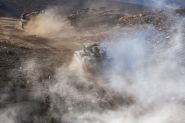
One year after the bombings that ravaged southern Lebanon, the villages are slowly rebuilding. Walls are repainted, schools have reopened, yet behind the desks, young hearts remain fragile.
The children of this region carry a silent trauma, born from the roar of bombs, sleepless nights, and constant fear. Where the sirens have fallen silent, the memories continue to scream.
The Invisible Trauma
Sam, 10, still trembles at the sound of an airplane overhead. “I can’t sleep anymore,” he admits in a barely audible voice.
Outside a public school in Marjayoun, nine-year-old Lena tightly clutches her backpack. “She hasn’t properly slept for months,” says her mother. “At night, she wakes up screaming that a plane is coming.”
Psychologists point to clear signs of post-traumatic stress: recurring nightmares, hypervigilance, and panic attacks. In the classroom, this shows as difficulty concentrating, memory lapses, and sometimes unexplained aggression. “They startle at the slightest noise, tense up when a door slams,” explains Hiba, a teacher in Khiam. “Some refuse to sit by the windows; others ask if the school has a shelter.”
A place meant to be a refuge, the school has instead become a space of constant anxiety.
Scars on the Body, Wounds in the Soul
To the invisible pain is added the suffering of the battered bodies. Some children in southern Lebanon still bear the physical marks of war: shrapnel wounds, burns, amputated limbs. “Kamal, 11, lost a leg during a bombing,” says the principal of his school. The eyes of these children reveal early fatigue and a maturity forced upon them too soon.
“Physical pain constantly triggers memories of danger,” explains Rania, a psychologist. “The body becomes a permanent reminder of the war, making psychological recovery even more complex.”
Here, rehabilitation goes beyond medical treatment: it is a journey of reconciling with oneself, relearning movement, play, and the ability to trust again.
The Wounded Language of Childhood
In the schoolyards, war creeps even into play. Children reenact bombings, mimic drones, and build cardboard shelters. “When they argue, they say, ‘I’m going to bomb you, I’ll send a drone,’” recalls Nahida, principal of a school in Marjayoun. “It’s not out of aggression; the war has simply seeped into their language.”
Play, meant to be liberating, has becomes a reflection of trauma. Their imagination is haunted by the same images: pockmarked houses, airplanes, smoke. “They act out evacuations,” says Samira, a teacher at Marjayoun National College. “One group hides while the other plays rescuers.”
This repeated play is more than entertainment. It becomes a way to confront fear, understand it, and regain a sense of control.
Trauma does not stop at emotions. It invades learning. Concentration falters, memory weakens, and unusual aggression appears. “Some students withdraw into themselves while others become irritable,” explains Fouad, a math teacher in Taybeh. “School becomes a new battlefield within the mind and heart.”
Fragmented Childhood, Shattered Anchors
War has not only destroyed homes; it has torn families apart. Displacement, exile, and loss have shattered the emotional foundations that children depend on.
“The children we welcome here have lost everything: their homes, their toys, sometimes even their friends,” says Fadia, a school psychologist.
Maya, a teacher in Shebaa, witnesses the same distress. “Many children have lost a parent or live apart from their extended families. They arrive with a sense of abandonment, without any stable anchors.”
Without this emotional grounding, healthy development becomes a struggle. “Some children still draw their father, even if he has died,” says Randa, a psychologist in Marjayoun. Prolonged separations blur the line between reality and imagination. “Children create a parallel world to fill the void,” she explains. “It is a survival strategy for their emotions.”
School, the Last Bastion of Reconstruction
In the face of such loss, schools have become healing spaces. With the support of local and international NGOs, programs offering psychological support have been established, including talking workshops, art therapy, and group activities.
“Our goal is to restore a sense of safety and help children express their emotions,” explains Fouad, an educational coordinator.
According to UNICEF, more than 10,000 children in southern Lebanon have received emergency psychological support. Studies show that 60% display signs of emotional distress, and one-third show symptoms of post-traumatic stress.
“School has become a place of reconstruction,” emphasizes Najwa, a school psychologist. “Here, children regain their footing, feel safe, and rediscover the possibility of dreaming again.”
From Fear to Light
In the schoolyards, laughter is slowly returning. The roar of bombs has been replaced by the shouts and giggles of children. War may have stolen their childhood, but it has not dimmed their inner light.
For Soha, a school principal in Mays al-Jabal, peace is not measured by ceasefires. “Peace begins when they dare to laugh, play, and dream. When they feel truly safe,” she says.
These children of the aftermath, bearing invisible wounds, are learning every day to rebuild their world. In their drawings, their words, and their rediscovered laughter, the promise of a generation shines. Despite everything, they choose life.



Comments